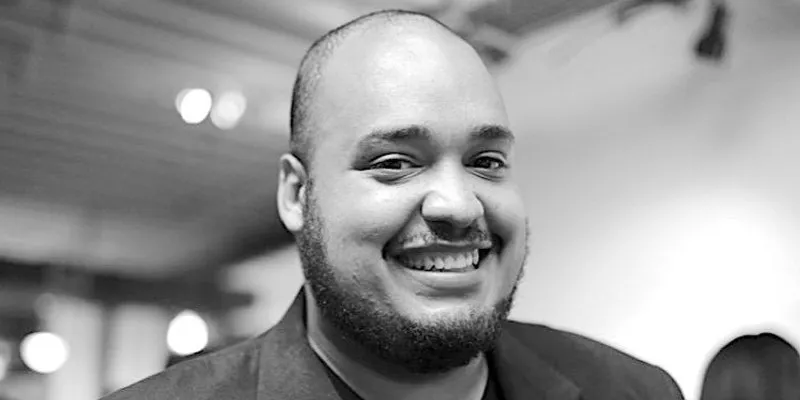Success is not about fundraising alone, says Michael Seibel, CEO, Y Combinator
Michael says the best founders are those who can explain what their product is solving for customers, and how they are going to execute the idea
Starting up is never easy. But, Michael Seibel, CEO, Y Combinator, knows a thing or two about what works and does not work while starting up.
Y Combinator (YC), the US-based startup accelerator, provides seed funding for startups, and has invested in more than 2,000 firms. The company has also nurtured the likes of Airbnb, Dropbox, Stripe, and Instacart, which are all unicorns today. And this year, Y Combinator has received around 16,000 applications for its winter batch.
Now, while some of us may look at that status as the numero uno principle of starting up, Michael brings us down to reality, and says that starting up is not easy. It is not just about fundraising, but it is more to do with building products that customers can use, and it is about managing one’s own conflicts along with setting the agenda for the team.
In an exclusive interaction with YourStory, Michael shares his thoughts for the new decade, and talks about working with the best founders, why they make a difference, and what makes them successful. Edited excerpts from the interview:

Michael Seibel, CEO of YCombinator (picture credit - https://www.crowdcast.io/)
YourStory: Why is it few startup founders are reluctant to have a co-founder?
Michael Seibel (MS): Startup founders underestimate the fact that running a startup is hard and is going to be taxing for them. Often, it is the co-founder who keeps the team alive and ensures there is a product-market fit. And if you don’t write code, it is better to have a co-founder with a technical background, and one can assume that ninety percent of the startup is then executed.
In my first startup, there were four co-founders, and I was the only non-technical co-founder. So, it was a great combination of technical capabilities and business capabilities. It was the same even in my second startup.
Everyone thinks that if you have an idea, you can go raise money, and the founders also feel it is the most important thing. When you look at the numbers, most startups that have raised money also fail. Raising money is just one part of the whole process, and founders should understand that.
Another thing is when you talk about problems, founders become collaborative brain stormers. They can take ten percent of the idea and expand it into ninety percent, which is a good sign. Unfortunately, most of them don’t understand this. Even when they know there is a problem, they don’t want to change the plan as many are scared. The founders should focus on solving a problem for the customer, and if the first solution does not work, then they have to change it. I have often seen them holding on to the solution and forgetting about the actual problem.
When startups come to YC, I tell them only five percent of the companies in the batch will achieve what they want to. About 90 percent of the applicants tell their history, and only about 10 percent of them tell us how they are solving a problem for a particular user.
Now, if you are an employee, who would you work for? - the 10 percent or the 90 percent? The answer is evident. The job of the founder is to rally support from the ecosystem, and they have to work with investors, employees, and customers.
Watch Michael Seibel, CEO, Y COmbinator, in conversation with YourStory:
YS: Building a business takes time. What should be the motivation behind starting up?
MS: The question is can founders manage their priorities and emotions for long? People startup and think ideas will work immediately. You plan for three months, but after six months, you suddenly feel you are not motivated. I have seen thousands of such cases. Even when they have money, they are not motivated to make it work. Most failures I see are due to lack of motivation, not solving for the customer, and due to founder conflict.
YS: With all these elements weighing on the founders as a burden, how can they be a force for good?
MS: I want to challenge YC founders here. The traditional model of a startup is to create a business and get rich, and in the process create social businesses or foundations for good.
But what is the next level of doing good? I ask the founders that when they are scaling, what is the unique way in which they can help. Take for example Google - they have infinite resources now to do good. So, I ask our founders what they can do when their product becomes big. Let me give you Airbnb’'s example. They are using their platform to create access to housing during natural disasters. It is a proven model for good. They use tech to figure out what is available and provide people shelter in the time of need.
Now you see the difference - this is not about money making a difference, but, it is the technology. This is the fundamental difference in thinking for social good.
YS: Why is it the capital is focused only on founders for the last ten years, and why are so many of them struggling now?
MS: The trend has moved from consumer products to software-led businesses with an offline component. It moved from Twitter, Instagram, and Facebook to businesses like Lyft, Uber, and WeWork, which are hard to build.
I believe it was hard to build a business like Amazon than Google simply because it has both offline and online components, and it had to manage with thin margins. It also had to manage its cash carefully compared to businesses whose software generated 95 percent margins. I am not surprised that these companies have challenges because it is a harder thing to do.
On the software side, the margins can be high, but, in online-offline business, you have to manage scale and cash at the same time. When you are starting out you need to be frugal if you are in an offline and online business.
YS: Cap tables are very important to startup. How should founders value ESOP plans and why?
MS: This is a very region-specific topic, and I can speak only for the Silicon Valley here. But it is a good question to address. The founders in the Valley keep 10 percent of their ESOP pool for their first 10 to 50 employees. I have noticed this trend mostly in software companies and operationally- intensive companies.
I feel founders should offer employees stock options even if they don’t know its value. Founders must give at least ten percent stake in the company to its employees, which will be a motivating factor for them to believe in the company. Founder CEOs who can maintain the passion about the problem they are solving can motivate teams for the long term, and these founders stay on for the long term. If you believe having a CEO can make sense, then go ahead and hire one by all means.
YS: Following trends and making a business work is a long-term process. What are some of the things that you find important?
MS: One should remember that you cannot solve for today. You are aiming to solve something where the company will see success in the next five to fifteen years. A founder should be able to explain what the future would be like to employees and investors. If you don’t have a vision, then you are not ready to startup.
I look at founders who have not been able to raise money and tell them that behind every fundraise there is information that they don’t know. They don’t have to worry when someone else raises money, but they should just continue with the good work. There is so much explosion of news around startup funding that it becomes harder to focus on the right thing. Success is not about fund raising alone.
Also, I must say that startups cannot have people coaching them to succeed. For example, people look for that one guide or teacher who can help you succeed. It does not work that way. It is not easy because a startup needs your time and energy. It is all about your skills and expertise.
YS: What is the right time to startup when you have commitments?
MS: I would ask entrepreneurs this - are they willing to take this journey knowing that it may or may not work? If you have commitments (mortgages and family), work on your ideas over the weekend and keep a day job until you are absolutely sure about the product.
There are two reasons to startup while keeping your job; one is you are nervous that the product has to be ready before it works. This is not a good reason if you have resources because you have to be able to make the product work. And the second reason is if you have commitments and are committed to your idea, you can make it work by focusing on the idea over the weekends. But yes, you should be careful if you are in the same business as you are the employer.
YS: What are your thoughts on failure, high salaries of founders, and dropping out of college to startup?
MS: If you have failed the first time, it means you have learnt a lot. If you know how to run teams, finance, manage the salary, and work on the product, then investors will value you the second time around too because they know they don’t have to worry about your ability to handle day-to-day events of the company.
Founders should take salaries that are enough to make them run the company well, and not take investor money and put it in their savings. It should be enough to lead a comfortable life, and they should maximise the money for the growth of the company. And then there are those who believe in the value of education. I started up at 23, right after college, and it was because of my friend who believed we could make the company work better.
At YC, we have a strong alumni network of founders who figure out how they can work together with all the startups to learn quickly. I have seen many times that founders are not able to raise money outside and when they get in to YC with the same business idea, investors want them. The next batch, which will be announced in January, had 16,000 applications and we have shortlisted them. There were applications from all types of businesses. We are agnostic to business ideas and every application gets looked at - you don't need anyone to influence the process.
YS: What do you think of Indian startups?
MS: Investors in the valley are yet to understand how the Indian market is shaping up. For example, I did not know for a long time that only 100 million people spoke English in India. So, the business opportunity for such a market is different, and investors in the US are yet to understand that. Like the startups in Latin America, Indian founders want to make their country a better place with their startup. As we invest more in emerging markets, we see founders wanting to use technology for good.
YS: Three books that you would recommend to our readers.
MS: Factfulness: Ten Reasons We’re Wrong About the World — and Why Things Are Better Than You Think
Money: The unauthorised biography
Boyd: The fighter pilot who changed the art of war
(Edited by Megha Reddy)




![[The Turning Point] How three colleagues identified the friction in the way India used EMI and solved it with ZestMoney](https://images.yourstory.com/cs/2/730b50702d6c11e9aa979329348d4c3e/Image42m21576236756411jpg?fm=png&auto=format&h=100&w=100&crop=entropy&fit=crop)




